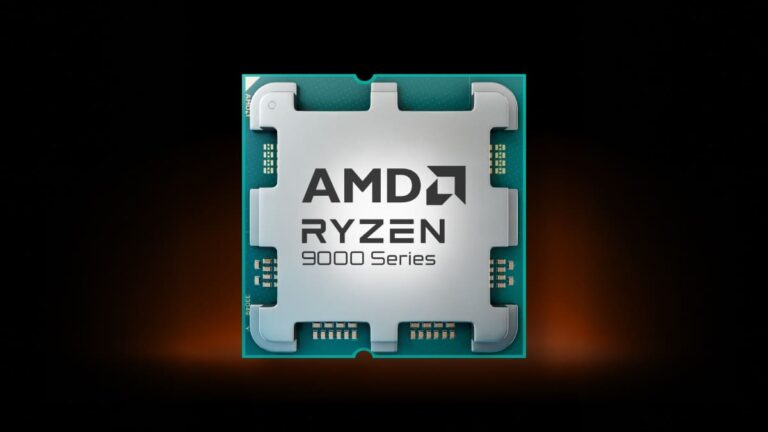
When we think about processors, especially for computers, two names come to mind: AMD and Intel. Recently, AMD has been making advancements in both performance and power consumption in the processor market. AMD has been winning enthusiasts’ minds for a very long time by providing low-cost, high-performance processors. The performance boost compared to its counterpart Intel is commendable at the same price point. Instability issues with recent Intel 13th and 14th-gen processors have made AMD more reliable in users’ minds. Currently, a lot of enthusiasts, professionals, and gamers’ first choice is AMD processors.
Therefore, undoubtedly, there were high hopes for the recently launched AMD 9000 series processors. After the CEO, Lisa Su, claimed there would be approximately a 16% performance boost in the 9000 series processors over the previous Zen, the enthusiasts and fans were hyped about the new Zen 5 9000 series processors. However, the high cost of the processors doesn’t suffice for the performance, while they were performing as expected. The 7000 series is performing at the same level as the 9000 series, and testers and reviewers did not see any performance spike as claimed. The drop in sales trends for the newly launched AMD processors is clearly visible. On the other hand, the 7000 series processors saw a price hike in the market as demand for that series continues to rise.
Everyone was really hoping for another magic moment in the processor industry. Unlike Intel, AMD did a great job recovering from this. They called back all of their processors from the retailer supply chain channel, which was a very courageous and responsible action on AMD’s part. Some units of the 9000 series processors may have slipped through to different countries, but AMD is determined to ensure that no one receives defective units. Here’s what AMD had to say regarding the issue:
“We appreciate the excitement around Ryzen 9000 series processors. During final checks, we found that the initial production units shipped to our channel partners did not meet our full quality expectations. Out of an abundance of caution and to maintain the highest quality experiences for every Ryzen user, we are working with our channel partners to replace the initial production units with fresh units. As a result, there will be a short delay in retail availability. The Ryzen 7 9700X and Ryzen 5 9600X processors will now go on sale on August 8th, and the Ryzen 9 9950X and Ryzen 9 9900X processors will go on sale on August 15th. We pride ourselves in providing a high-quality experience for every Ryzen user, and we look forward to our fans having a great experience with the new Ryzen 9000 series.” – Jack Huynh, AMD SVP and GM of Computing and Graphics.
After a Windows 11 update (24H2), the performance of the 9000 series processors received a substantial boost, so it wasn’t entirely the processors’ fault after all. In a recent test with ASUS ROG’s new motherboard, the ROG Crosshair X870E Hero, the AMD Ryzen 9 9950X reached a whopping 7.5GHz (valid.x86.fr/zc58r1). So we can depict that there’s still hope for the 9000 series after the delayed launch. Though AMD is trying their best to beat Intel in the processor market, Intel’s i9-14900K is still outperforming AMD’s new series processors in almost every benchmark, whether in productivity or gaming. But as the competition goes on, we’re enthralled to experience new technology and expect further developments in the processor industry: better cache, better clock speeds, and competitive prices, of course.